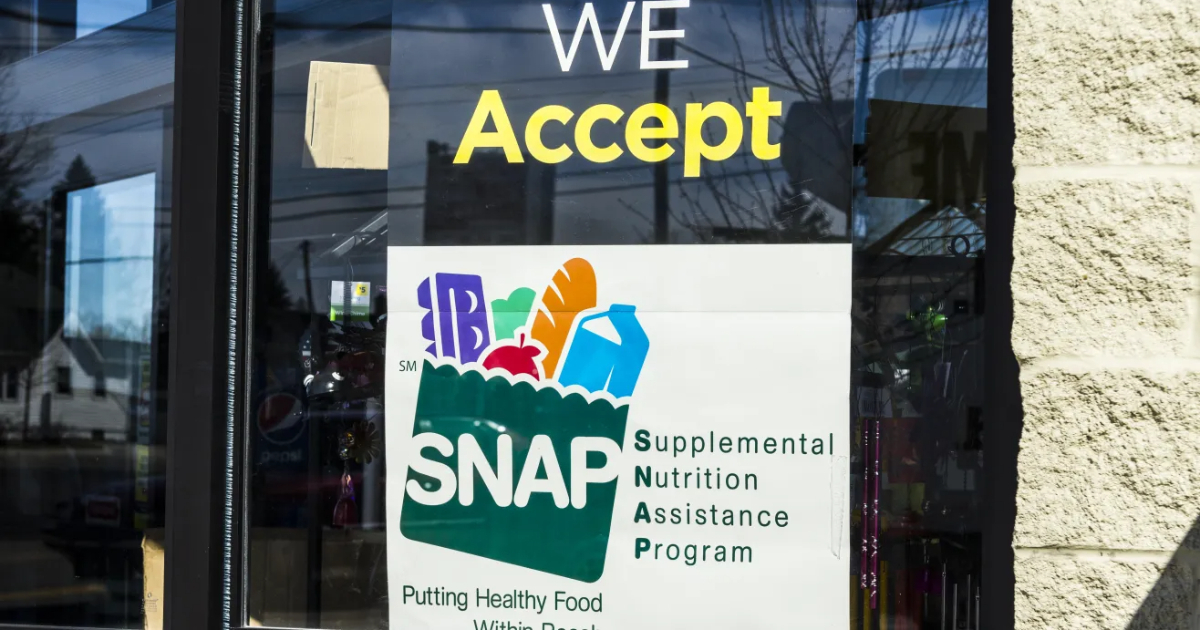
The Supplemental Nutrition Assistance Program (SNAP), formerly known as the "Food Stamps Program," is one of the main tools of the U.S. government to combat hunger, especially among low-income families and individuals.
In Florida, this program is administered by the Office of Economic Self-Sufficiency (ESS) of the Department of Children and Families (DCF), and follows federal guidelines to determine who qualifies for food assistance.
Who is eligible to receive SNAP?
SNAP is designed to support those with limited resources, including people with disabilities, low-income families, and individuals who rely on fixed income. Although eligibility requirements are mostly set at the federal level, each state can make certain adjustments.
Some key requirements include:
- Comply with federal regulations regarding income and resources.
- To have a qualified social status if one is not a U.S. citizen.
Who cannot receive SNAP benefits?
Some people are not eligible for SNAP, such as those who have been convicted of drug trafficking, individuals fleeing from felony charges, those who have deliberately violated program rules, and certain college students who attend school at least half-time.
Benefits of SNAP: What can you buy?
SNAP benefits are deposited on a rechargeable card called "Electronic Benefits Transfer Card" (EBT).
These funds can be used to purchase basic products such as bread, cereals, fruits, vegetables, meat, and dairy products.
However, the coupons cannot be used to purchase non-food products such as cleaning supplies, alcohol, tobacco, or fast food.
Special program SUNCAP
For individuals receiving Supplemental Security Income (SSI), Florida has the special SUNCAP program, which facilitates access to SNAP benefits without the need to apply separately.
If you are already receiving food assistance and are eligible for SSI, you could be automatically transferred to SUNCAP.
Pilot Program for Online Shopping
Since May 2021, several retailers, such as Walmart, Amazon, Publix, and Whole Foods, started accepting SNAP payments online.
This makes it easier for beneficiaries to purchase food without having to leave their homes, a key advantage in times of pandemic or for those facing mobility challenges.
Nutritional incentives: Fresh Access Dollars
An interesting initiative is the Fresh Access Bucks (FAB) program, which allows SNAP beneficiaries to purchase fresh fruits and vegetables at local markets, produce stands, and other community initiatives.
This program is funded by the USDA and aims to improve the nutrition of families by providing access to fresh and healthy foods.
More information
If you live in Florida and want to know more about how to apply for these benefits, you can visit the official SNAP page on the Florida Department of Children and Families website.
The Supplemental Nutrition Assistance Program in the last four years
2023-2024 - Increase in fraud in Miami: Since 2023, there has been a notable increase in the theft of food stamp funds in Miami, through card cloning and digital fraud.
Beneficiaries reported finding their cards empty when attempting to make purchases. Authorities have activated emergency measures to replenish the stolen funds. You can read more about the increase in coupon theft in Miami and cases like that of an affected elderly woman.
2021 - Historic increase in SNAP benefits: In August 2021, the U.S. government approved the largest increase in the history of the SNAP program.
The average monthly benefit per person increased from $121 to $157, with the aim of boosting the purchasing power of families in supermarkets and countering the economic effects of the pandemic. This historic increase was key to helping 42 million Americans.
2020 - 5.3% increase in SNAP food assistance: In response to inflation and the impact of the pandemic, the U.S. government increased food assistance by 5.3%.
This raised the average monthly allocation for a household of four to $680. This measure was part of the responses to the COVID-19 crisis.
2018 - Insufficiency of food stamps in key counties of Florida: An analysis showed that the coupons allocated by the SNAP program did not cover the actual cost of a meal in several counties of Florida, such as Miami and Broward.
The program allocated $1.86 per meal, while the actual cost was $2.64 in Miami.
What do you think?
COMMENTFiled under: